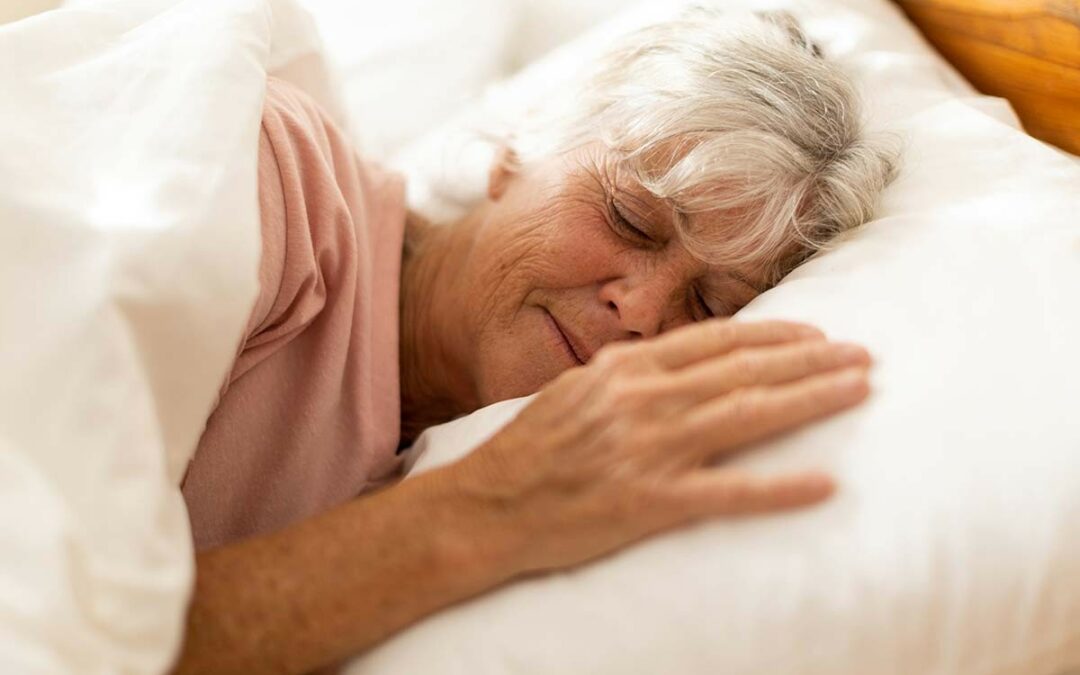Sleep disturbances are a significant issue among the elderly, particularly for those with mobility limitations. This comprehensive guide aims to provide insights and strategies to improve sleep quality in elderly individuals facing these challenges, offering a beacon of hope and practical solutions for caregivers and family members.
Understanding Sleep Problems in the Elderly
Physiological Changes
As we age, our sleep patterns inherently change. Elderly individuals often experience a decrease in deep sleep stages and an increase in nocturnal awakenings. Factors like decreased melatonin production and changes in the brain structure that regulate sleep contribute to these alterations.
Common Causes
Numerous factors can exacerbate sleep problems in the elderly. Emotional stressors, such as the loss of a loved one or loneliness, play a significant role. The presence of dementia can disrupt the sleep-wake cycle, leading to increased nighttime activity and daytime napping. Medications for chronic illnesses often have side effects impacting sleep. Additionally, the natural aging process alters circadian rhythms, making seniors more prone to early evening sleepiness and morning wakefulness.
Identifying Sleep Disorders
Symptoms
Sleep disorders in the elderly can manifest as difficulty falling asleep, staying asleep, or waking up too early. Nighttime restlessness, frequent bathroom trips, snoring, and sleep apnea are also common. Daytime symptoms include excessive sleepiness, irritability, and a decreased ability to concentrate.
When to Seek Help
It’s crucial to consult healthcare professionals when these symptoms persist, as they can indicate more serious underlying health issues. Early intervention can significantly improve quality of life.
Practical Strategies for Better Sleep
Creating a Sleep-Conducive Environment
Ensuring a comfortable, safe sleeping environment is crucial. This includes adjustable beds for easier access, non-slip mats, adequate night lighting, and maintaining a comfortable room temperature. It’s also beneficial to reduce noise and light disruptions.
Routine and Lifestyle Adjustments
Establishing a regular sleep schedule helps regulate the body’s internal clock. Limiting naps, especially late in the day, and avoiding stimulants like caffeine and nicotine close to bedtime are recommended. Creating a relaxing bedtime routine, such as reading or listening to soothing music, can also be helpful.
Diet and Exercise
Nutritional needs change with age. A balanced diet rich in fruits, vegetables, and whole grains can improve sleep quality. Physical activity, tailored to mobility limitations, aids in promoting fatigue at night, making it easier to fall asleep.
When Sleep Issues Persist
Dealing with Persistent Sleep Problems
If sleep problems continue, it’s important not to force sleep. Instead, engage in a quiet, relaxing activity until feeling sleepy again. Avoid clock-watching, as it can increase stress about sleeplessness.
Professional Help and Treatment Options
Healthcare providers may recommend therapies such as sleep hygiene education, cognitive behavioral therapy for insomnia (CBT-I), or, in some cases, prescribe sleep medications with careful monitoring due to potential side effects in the elderly.
Role of Caregivers and Home Care
Support from Caregivers
Caregivers can significantly impact the sleep quality of their elderly charges by establishing regular routines, ensuring medications are taken correctly, and providing comfort and reassurance during nighttime awakenings.
Adapting Care for Mobility Issues
For those with mobility issues, caregivers can assist with evening routines, ensuring the bedroom environment is safe and accessible, and helping with any physical needs that may arise during the night.
Managing Sleep Problems with Elderly Loved Ones
In addressing sleep problems among elderly individuals, especially those with mobility issues, we have explored a range of strategies and insights. It’s important to remember that each individual’s situation is unique, and what works for one may not work for another. The key is persistence and a willingness to adapt strategies as needed.
The role of caregivers and family members in this process cannot be overstated. Your dedication and efforts make a significant difference in the lives of your elderly loved ones. Whether it’s adapting the sleeping environment, adjusting daily routines, or seeking professional help, your actions contribute immensely to their well-being.
complex and sometimes symptomatic of underlying health issues. Doctors, nurses, and sleep specialists can provide invaluable insights and recommendations tailored to individual needs.
Equally important is the personal touch you bring to caregiving. Your understanding, patience, and empathy create a comforting and supportive environment that is crucial for managing sleep problems. Your role goes beyond physical care; it extends to emotional and psychological support, which is often just as important.


Recent Comments